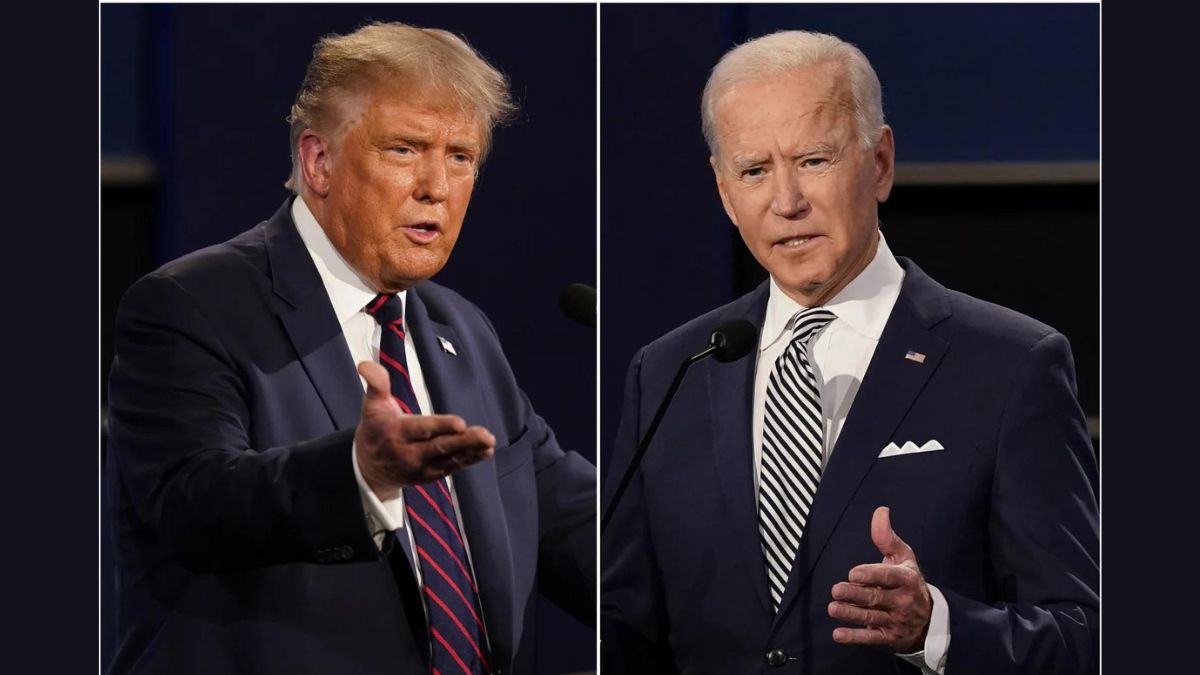In the first presidential debate hosted by CNN, India and China came up as focal points in the discussions between President Joe Biden and former President Donald Trump as both eye a second term in the White House in the November election. The two candidates clashed over climate policy and international relations, with Trump making bold claims and Biden defending his administration’s actions.
Climate Crisis and the Paris Accord: Trump targets India
During the debate, Trump emphasised his commitment to environmental standards during his presidency, saying, “I want immaculately clean water, air. When I was the president, we had it. We had the best numbers ever. During my four years, I had the best environmental numbers."
In contrast, Biden listed out his climate policy achievements. He said, “I passed an extensive climate policy….I immediately joined the Paris Peace Accord.” Trump had withdrawn from it during his tenure as the US president.
Trump criticised the Paris Accord, claiming, “It would have cost a million dollars to the US while other countries like India, China and Russia had to pay nothing.”
Accusations against China
The debate saw Trump accusing China of economic aggression against the US. “China is going to own us if you keep allowing them to do what they’re doing to us as a country,” he told Biden.
Impact Shorts
More Shorts“They are killing us as a country, Joe, and you can’t let that happen. You’re destroying our country,” Trump said, alleging that Biden’s policies were pushing the US towards a potential world war.
Trump also criticised Biden’s military policies as “insane,” claiming that leaders like China’s Xi Jinping, Russia’s Vladimir Putin, and North Korea’s Kim Jong Un didn’t respect or fear Biden. “They have nothing going with this gentleman and he’s going to drive us into World War III,” Trump stated.
‘He’s a Manchurian candidate’
Trump stepped up personal attacks on Biden, calling him a “Manchurian Candidate” and claiming that he was “paid by China”. Trump said, “We now have the largest deficit in the history of our country. We have the largest deficit with China. He gets paid by China. He’s a Manchurian candidate. He gets money from China.”
The term “Manchurian Candidate” refers to a person, especially a politician, being used as a puppet by an enemy power. It originally comes from a novel written by Richard Condon in 1959 and later adapted in a film by the same name in 1962 where an American soldier is brainwashed into becoming an assassin for a communist conspiracy. By using this term, Trump implied that Biden was being controlled or influenced by China, a severe and provocative accusation.
Trade deficit and tariffs
Biden countered, pointing out that the US was running its “lowest trade deficit with China since 2010” and accusing Trump of failing to make “any progress” with Beijing.
Soon after the debate, reports cited the US Census Bureau record to back Biden’s claim. The trade deficit with China was $279 billion last year, the lowest since 2010 and down from a record $418 billion in 2018 during Trump’s presidency.
Both candidates pledged to take a tough stance on China, with Trump promising to raise tariffs by 10% on all imports and hinting at taxes as high as 60% on Chinese exports. Biden has maintained the tariffs imposed by Trump and announced new tariffs as high as 100% on electric vehicles.
Trump dismissed concerns that his policies would raise US inflation and hurt American consumers, arguing that such hikes would force countries like China to pay more to the US and reduce the trade deficit.
The debate underscored the heightened focus on China and India in the US political landscape, reflecting broader concerns about international trade, climate change, and national security particularly in the context of the ongoing tensions between Washington DC and Beijing over Taiwan and the South China Sea.
)